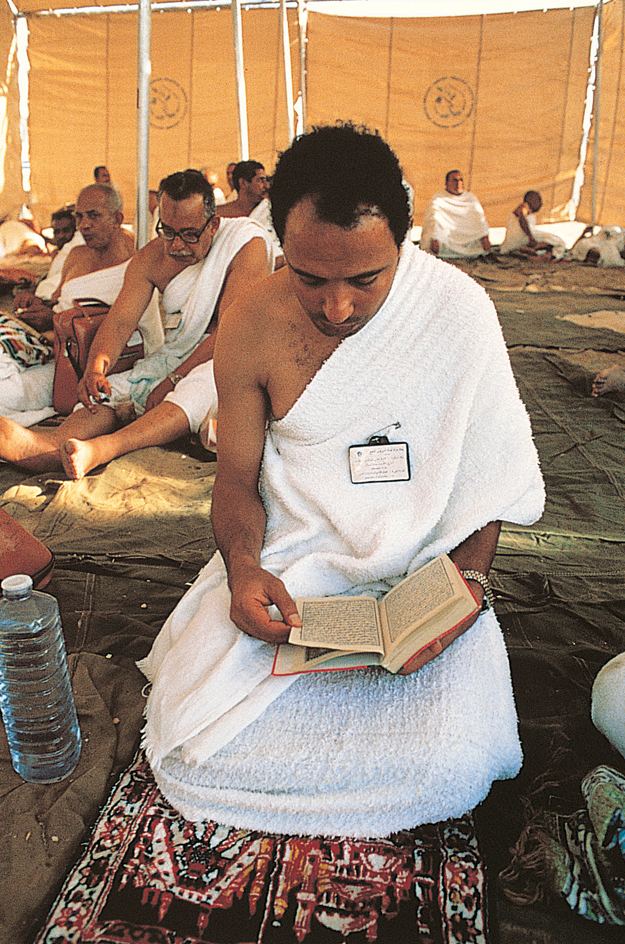Qur’ān, << ku RAHN or ku RAN, >> is the sacred book of the Muslims. It is also spelled Koran. The name Qur’ān means a recitation or something to be recited, presumably in worship.
Muslims believe the angel Gabriel revealed the Qur’ān to the Prophet Muhammad a little at a time. The revelations began about A.D. 610 and continued until Muhammad’s death in 632. Muhammad’s followers, who wrote down the revelations, collected them into the book that is now known as the Qur’ān. The standard text of the Qur’ān was formed during the reign of the caliph (leader) Uthmān ibn Affān, who ruled from 644 to 656. Muslims consider the Qur’ān to be the words of God Himself, and in no sense the composition of Muhammad. They believe that the earthly book, bound between covers, is a copy of an eternal book that is kept in heaven.
The Qur’ān consists of verses grouped into 114 chapters. The chapters vary in length from a few lines to over 200 verses. Much of the Qur’ān is written in rhymed Arabic prose. Muslims believe that the rich, forceful language of the text is humanly unmatchable, and a miracle that confirms Muhammad’s prophethood.
Teachings.
The central teaching of the Qur’ān is that there is only one God. The word for God in Arabic is Allah. Allah is the creator of the universe and requires Islam (submission) to Himself. Allah, in His mercy, sent the Qur’ān as a guide for humanity. Another important teaching concerns the prophets who have been God’s messengers to different peoples. The Qur’ān mentions the prophets Abraham, Moses, Jesus, and many others. It describes Muhammad as the last of the prophets.
The Qur’ān speaks of a day of judgment when people shall stand before God to account for their lives. It contains many teachings to regulate Muslim daily life. It requires daily prayers, and stresses charity and brotherly love among Muslims. The Qur’ān teaches that one should be humble, temperate, brave, and just.
Influence.
The Qur’ān is one of the most widely read books in the world. Its teachings formed the basis of the great Islamic civilization of the past, and it guides and inspires millions of Muslims. The Qur’ān is the final authority in matters of faith and practice for all Muslims. It is the highest authority for Islamic law.

The Qur’ān has been taught orally and is memorized, at least in part, by virtually all Muslims. Thus, even illiterate Muslims possess and prize the text. The reverence for the holy book is so great that many Muslims learn the entire work by heart. The art of properly reciting the Qur’ān has been preserved and passed on through the centuries, and has been enhanced by the modern technology of audio cassette recording.
For hundreds of years, Muslims refused to translate the Qur’ān into other languages. They thought they should preserve the words of God in their original form. But in the early 1900’s, Muslims began to translate the Qur’ān into Eastern and Western languages.
